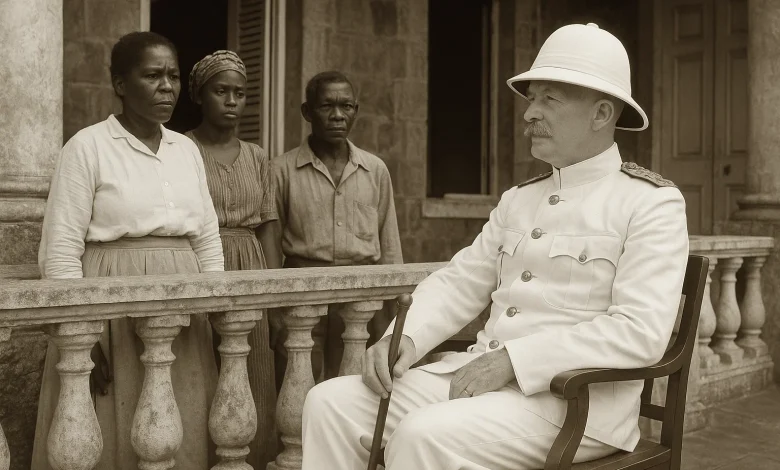Governor of Dominica

The Governor of Dominica was the Crown’s representative on the island during the British colonial period, serving as both chief executive and symbolic authority on behalf of the British monarch. The office oversaw the administration of law, order, and development from the 18th century through to the transition toward self-government in the 20th century.
Historical Background
The office of Governor was established in the 1760s, when Dominica became a British colony after the Treaty of Paris (1763). Early governors were military officials, often charged with maintaining defense against French incursions and managing plantation interests. Over time, the role evolved to encompass wider responsibilities for civil administration, taxation, and relations with both the European settlers and the free and enslaved African population.
By the 19th century, Governors reported directly to the Colonial Office in London, managing a small civil service and presiding over a nominated Legislative Council. Governors were instrumental in implementing British colonial policies, including the administration of emancipation in 1834 and subsequent land reform. They also mediated conflicts between the plantocracy and a growing class of smallholders and freedmen.
Transition to Self-Government
In the mid-20th century, as the Caribbean moved toward greater autonomy, the role of the Governor in Dominica shifted from absolute authority to a more collaborative function with elected legislators. By the 1950s and 1960s, the Governor worked alongside a local Chief Minister and cabinet, reflecting a gradual transfer of power to Dominican political leaders.
In 1967, Dominica became an Associated State of Britain, granting internal self-government. The Governor’s role remained as representative of the British Crown, though local elected officials controlled domestic affairs.
Final Governors and Independence
The last to hold the office was Sir Louis Cools-Lartigue, OBE, who served from 1967 to 1978. He presided over Dominica’s final years as an Associated State and played a crucial role in the island’s transition to independence. On 3 November 1978, when Dominica achieved full independence, the office of Governor was abolished and replaced by the President of Dominica, a ceremonial head of state under the new republican constitution.
Legacy of the Colonial Governorship
The Governors of Dominica shaped the island’s legal, political, and economic institutions for over two centuries. Their influence can still be traced in the island’s governance structures, its judicial system, and the central role of the state in development. While the role was rooted in colonial control, figures like Cools-Lartigue bridged the transition to sovereignty, marking the shift from external administration to national self-determination.




